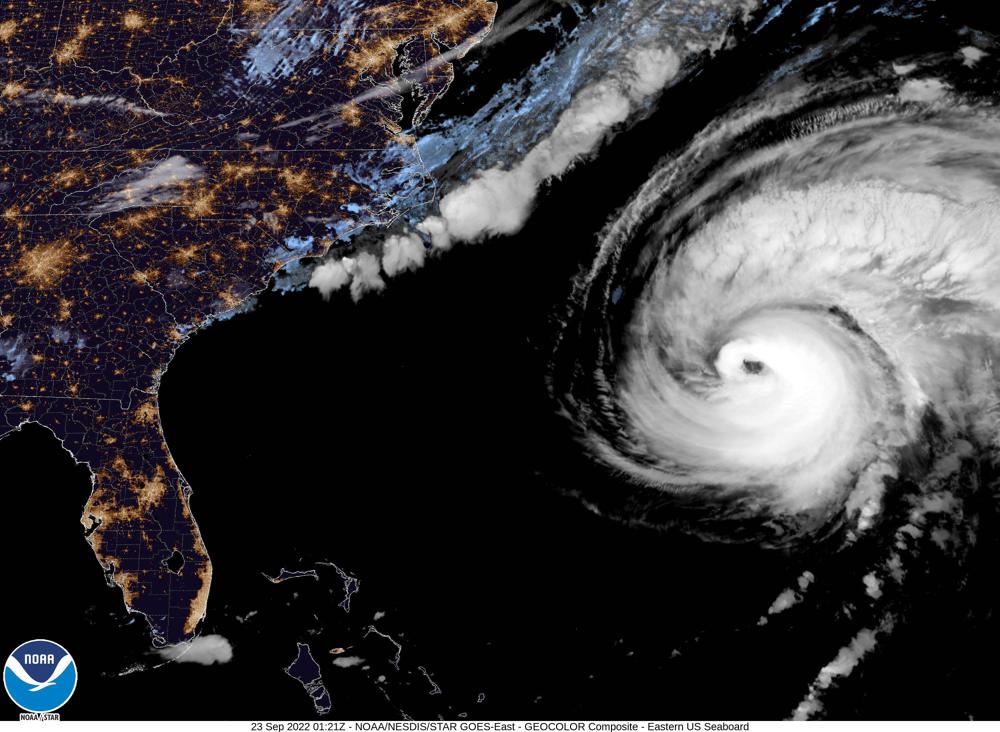

A hurricane expected to transform into a huge post-tropical storm will bring hurricane-strength wind, heavy rain and big waves to Atlantic Canada, meteorologists said Friday in warning that it has the potential to be one of the most severe storms in the country’s history.
Hurricane Fiona, which had weakened a bit to a Category 3 storm, was forecast to make landfall Saturday morning.
The Canadian Hurricane Centre issued a hurricane watch over extensive coastal expanses of Nova Scotia, Prince Edward Island and Newfoundland. The U.S. National Hurricane Center said Fiona should reach the area as a “large and powerful post-tropical cyclone with hurricane-force winds.”
Fiona was a Category 4 hurricane when it pounded Bermuda with heavy rains and winds earlier Friday as it swept by the island on a route heading for northeastern Canada. Authorities in Bermuda opened shelters and closed schools and offices ahead of Fiona. Michael Weeks, the national security minister, said there had been no reports of major damage.